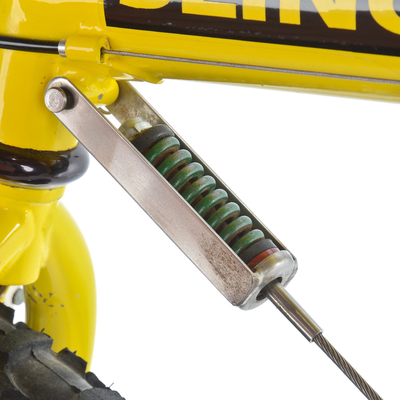Table of Contents
Slingshot
Slingshot bikes are startling in their originality. They use a unique suspension system which, once seen, can not be forgotten. It's a suspension bridge with wheels; a very flexy bridge, where the wheel base changes length on each pedal stroke and the rear end will twist. As one owner puts it, Slingshots are like riding a rattlesnake. And it worked. When Sling Shots debuted, the only rear suspension on offer was from MCR and Shuler - and kid's bikes.
Mark L. Groendal started the Greendale Bicycle Co. in Grand Rapids, Michigan in 1979. The first Sling Shot1) suspension system was invented in 1980 for Greendale's BMX bicycle 2).
The heart of the bike is the Kevlar hinge/spring plate located just in front of the seat tube; and as a spring, the plat maintains proper tension on the cables.
The cables, which replace the down tube in conventional bikes, have the simplest job. These cables control the limit of the wheelbase elongation.
The two steel springs located under the bottom bracket dictate the amount of wheelbase extension and create a consistent riding environment.
The springs are custom fitted to each individual cyclist according to his or her weight. Slingshot ad brochure, 1987 fattireflyer
The original hinges were made from sections of skis for flex plates and later from leaf spring material made by 3M. The first production Sling Shots appears in 1983 as BMX only, followed by mountain bike prototype appearing in 1984. The first year for Sling Shot mountain bikes was officially 1985. Their 1984 marketing literature published in 1984, with pics, promised them in late 1984. So, perhaps they arrived for sale in late 1984?
Mark sold the Greendale company and patents off in 1994 and continued to work with the making Slingshots (now called the Slingshot Bicycle Company.) Mark continued to make the Slingshot cable design on his own until as least 2017, with the Erb Bike. The Slingshot brand continues to exist making only hard tails.
Resources:
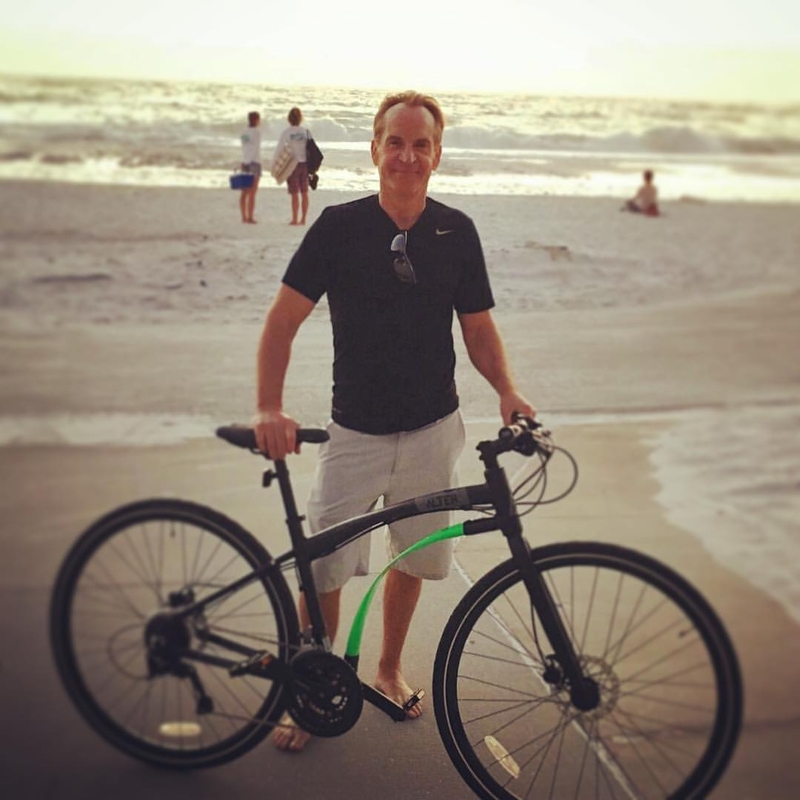
Mark Groendal, posing with his new Alter Cycle, 2017.
Steel leaf spring flexing an aluminum top tube on each pedal stroke.
facebook
1983 BMX
Not in timeline - but this was the proof of concept implemented in BMX.
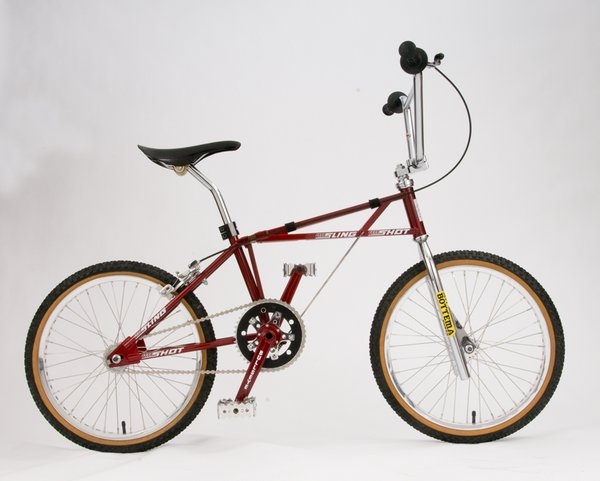
1983 BMX
bmxmuseum
1984 Sling Shot
Picture from 1984 BMX brochure. “We will producing mountain bikes and cruiser in the near future.” This is likely a prototype. SunTour ?? (GT? - not XC) rear derailleur, XC front and XC brakes (1984-85).
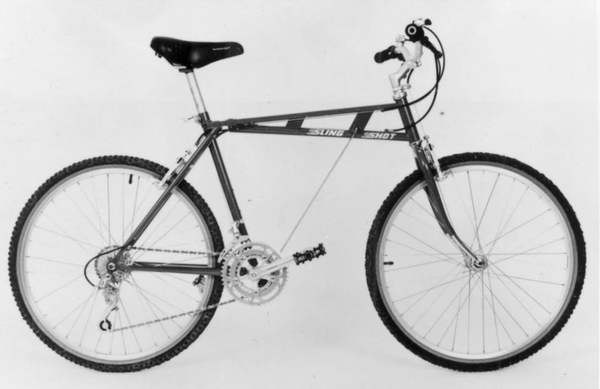
1984 Sling Shot
fattireflyer
1985 Sling Shot
This is from the Mombat collection, where they think this is a 1986, due to there being three toptubes instead of four. However, only their BMX bikes ever used the 4-bar arrangement and their 1984 sales brochure shows an identical set up to this bike, except that this example has a M700 rear derailleur (1982-84) and an IRD seat post (1985-87.) $695 complete.
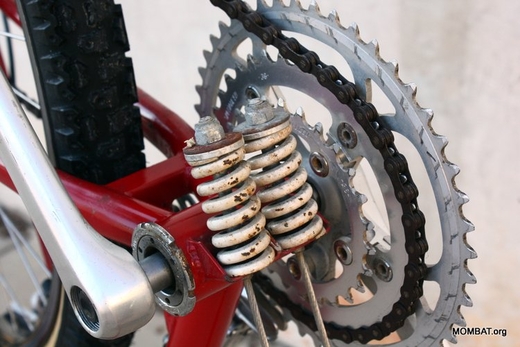
Dual springs mombat
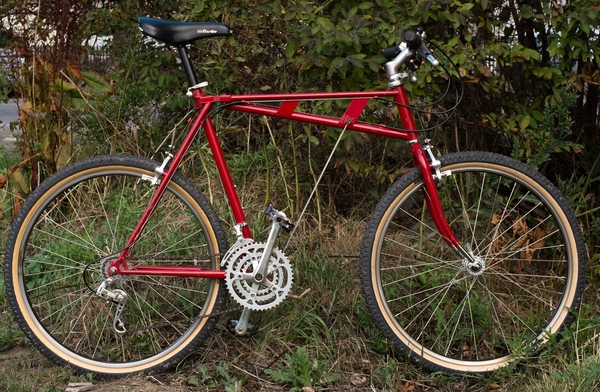
1985 Sling Shot
vintagemtbscandinavia
1986 Slingshot
M700 v2 (1985-86) rear, SunTour XC front. Three top tubes.
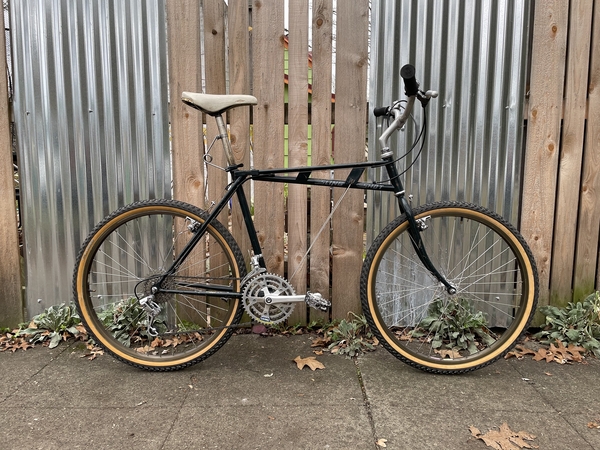
1986 Slingshot
facebook
1987 Slingshot
Upgraded components. The frame style is 1987, with two top tubes instead of three.
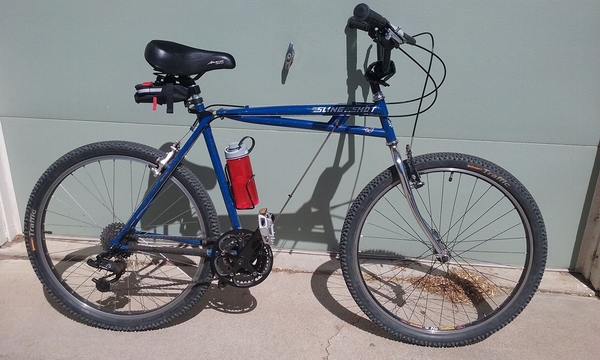
1987 Slingshot
facebook
1988 Slingshot
Single cable design with two top tubes. Interior spring at the top.
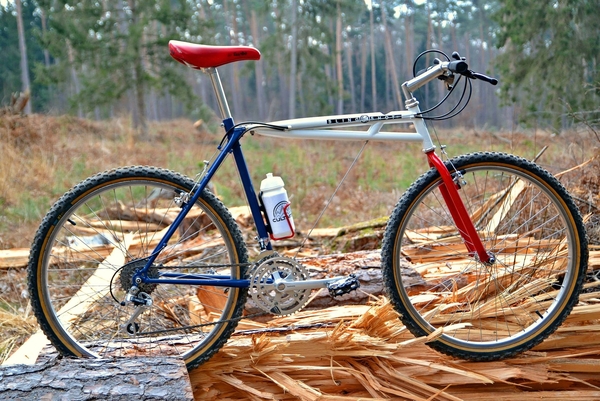
1988 Slingshot
facebook
1989 Slingshot
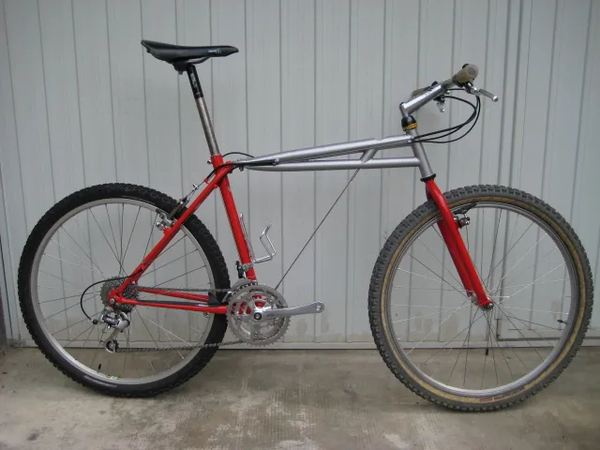
1989 Slingshot
thevintagemtb
1990 Slingshot
Full XT components. Dual top tubes, but now the cable anchors into the head tube. So why bother with two top tubes?
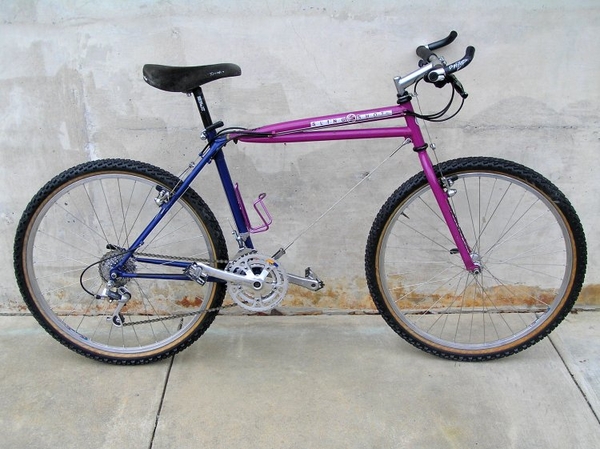
1990 Slingshot
mombat
1991 Slingshot
Single top tube, spring at the bottom.
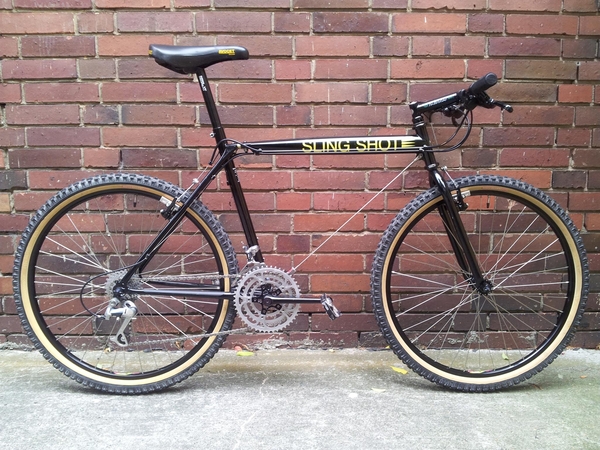
1991 Slingshot
facebook
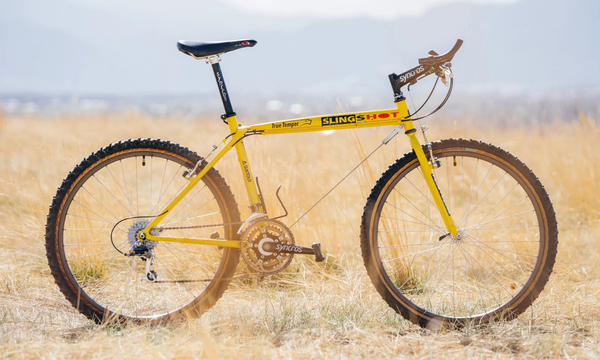
1992 Slingshot
theproscloset
1993 Slingshot
Single top tube, spring at the top.
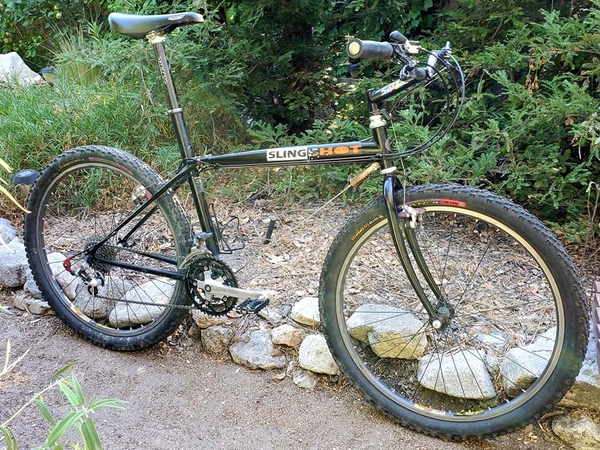
1993 Slingshot
facebook
